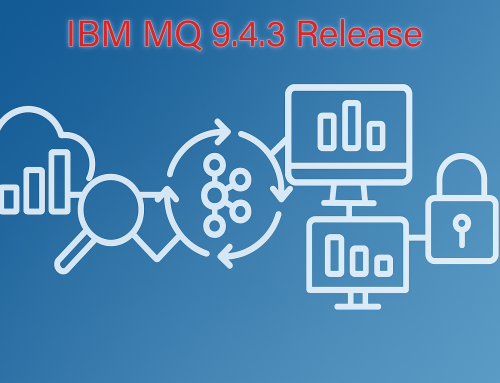Navigating MQ: From Basics to Best Practices
Rethinking Log Monitoring: The Limitations of Averaging Alerts
In the field of IT operations and system monitoring, the strategy of aggregating logs and triggering alerts based on averages has been a common practice. However, while this approach might seem efficient, it comes with several significant drawbacks that can lead to misinterpretations, delayed reactions, and ultimately, decreased operational effectiveness. Rethinking log monitoring is crucial in this context. It prompts a re-evaluation of traditional methods and paves the way for more accurate and responsive monitoring techniques. Let’s explore the specific pitfalls of averaging alerts to understand why a change in approach is essential for enhancing IT operations.

Over-Simplification
Averaging logs tends to overlook the detailed, complex aspects of system operations. Key anomalies, which might signal potential problems, are often lost in the averaging process, leading to a lack of detailed insight necessary for pinpointing specific issues.
Delayed Responses to Fluctuations
Averages can hide brief spikes or drops in activity. By the time these are recognized through averages and alerts are issued, the system might have already been negatively impacted. Real-time responses are compromised, leading to delayed problem resolution.
Concealed Issues
Averages can give a misleading impression of stability, masking real problems. For instance, a sudden increase in resource consumption by one process might be diluted when averaged, possibly missing a crucial issue needing urgent attention.
Distorted Performance Metrics
Relying on averages can give a false sense of security. The overall system might seem to be performing adequately, while in reality, certain components could be struggling or behaving erratically.
Missed Peak Loads
Averages don’t accurately reflect peak system loads and their effects. Consequently, organizations might not be fully prepared for high-demand situations, risking performance issues during critical times.
Complicated Root Cause Analysis
When problems occur, identifying the root cause is more challenging with alerts based on averages. Finding the exact problem source becomes a lengthy process, delaying solutions and affecting system reliability.
Inefficient Resource Allocation
Averaging can lead to poor resource management. Responses to alerts from averaged logs could result in unnecessary adjustments or resource usage, wasting resources during periods of actual system stability.
Inaccurate Capacity Planning
Averages are not effective for precise capacity planning. Relying on averaged data risks under or overestimating future resource needs, leading to inefficient infrastructure adjustments.
Increased Costs
Data is metered for cloud storage, which involves costs not only for storing but also for transferring and reading the data back into another tool.
Rethinking Log Monitoring: Embracing Precision and Adaptability
In today’s rapidly advancing technological landscape, it’s imperative for IT operations to embrace adaptable and precise monitoring strategies. While averaging alerts offers a basic approach, its limitations highlight the necessity for more sophisticated methods. Implementing detailed monitoring techniques, focusing on anomaly detection, and utilizing real-time analytics not only provide clearer insights but also ensure timely and accurate responses to system behaviors. Moving beyond the conventional use of averaged logs is crucial in proactively identifying and addressing issues, thereby significantly enhancing overall system performance.
Infrared360 is the only solution to monitor middleware in True Real-Time™, effectively sidestepping the limitations imposed by reliance on log-based monitoring. Learn more about our approach.
If you found these insights valuable and are eager to learn more, don’t miss our upcoming articles on IBM MQ best practices. Make it easier for yourself by filling out the form below, and we’ll deliver the next piece of expert knowledge straight to your inbox. Stay ahead in your MQ journey with our tailored insights.
More Infrared360® Resources
























